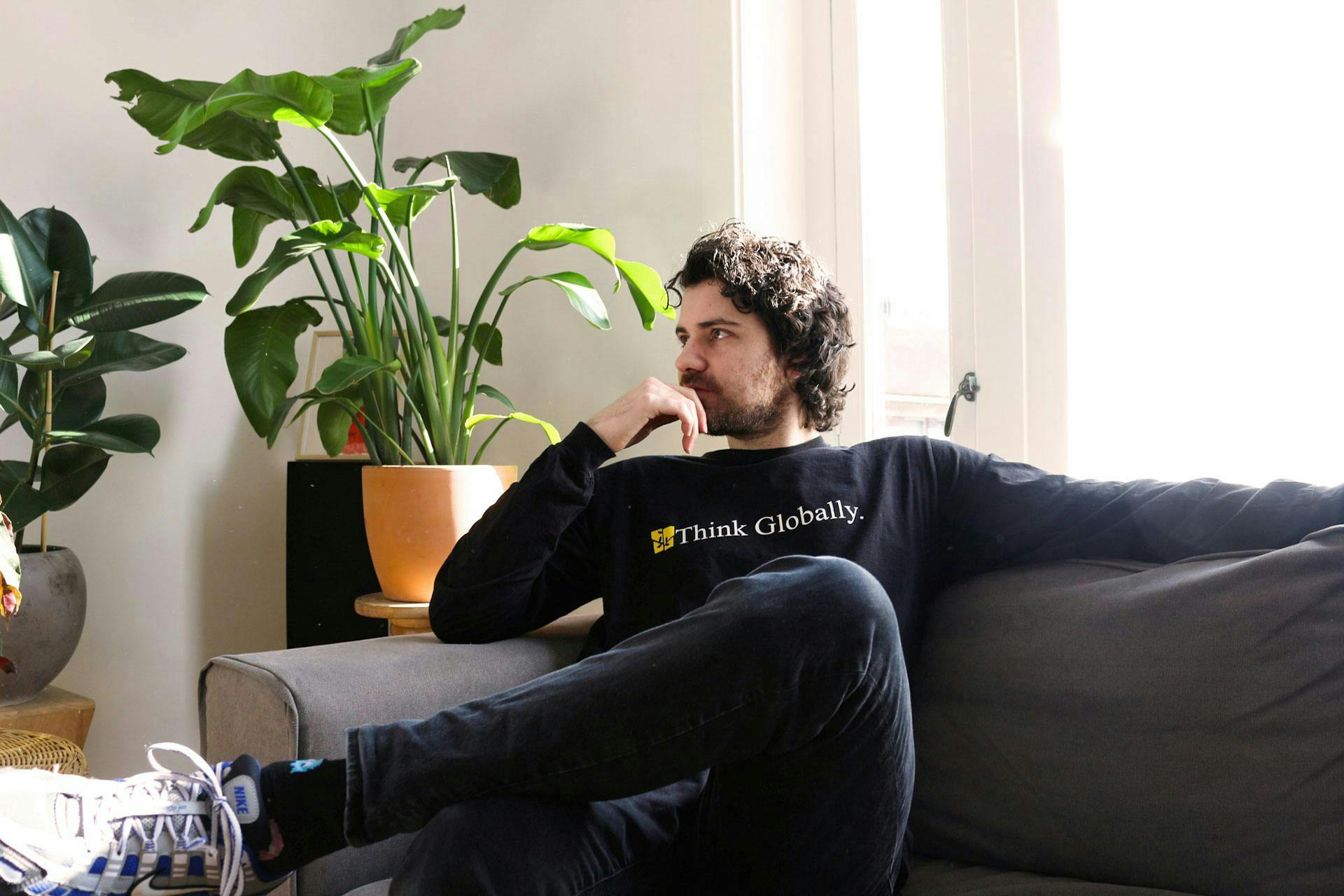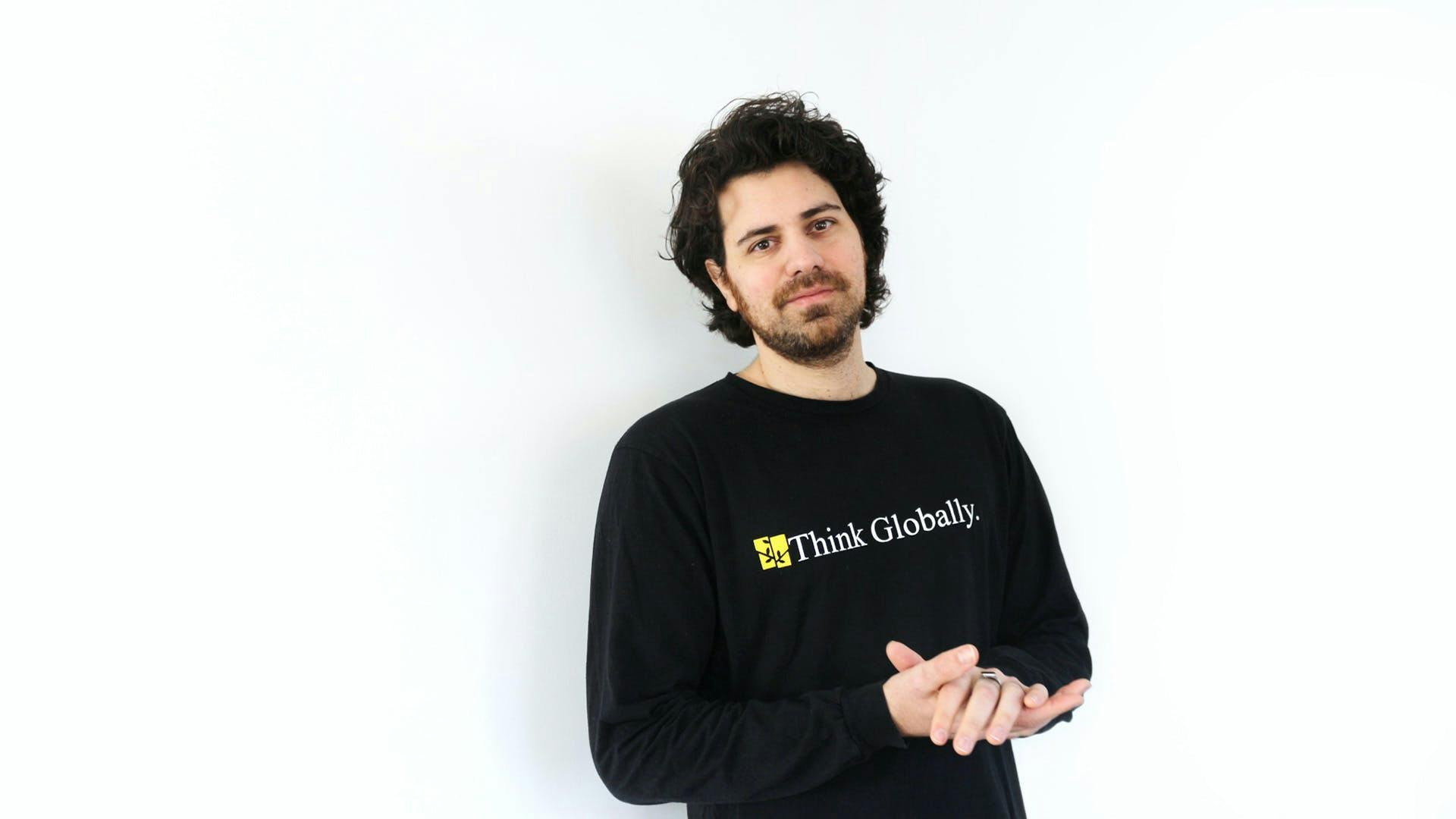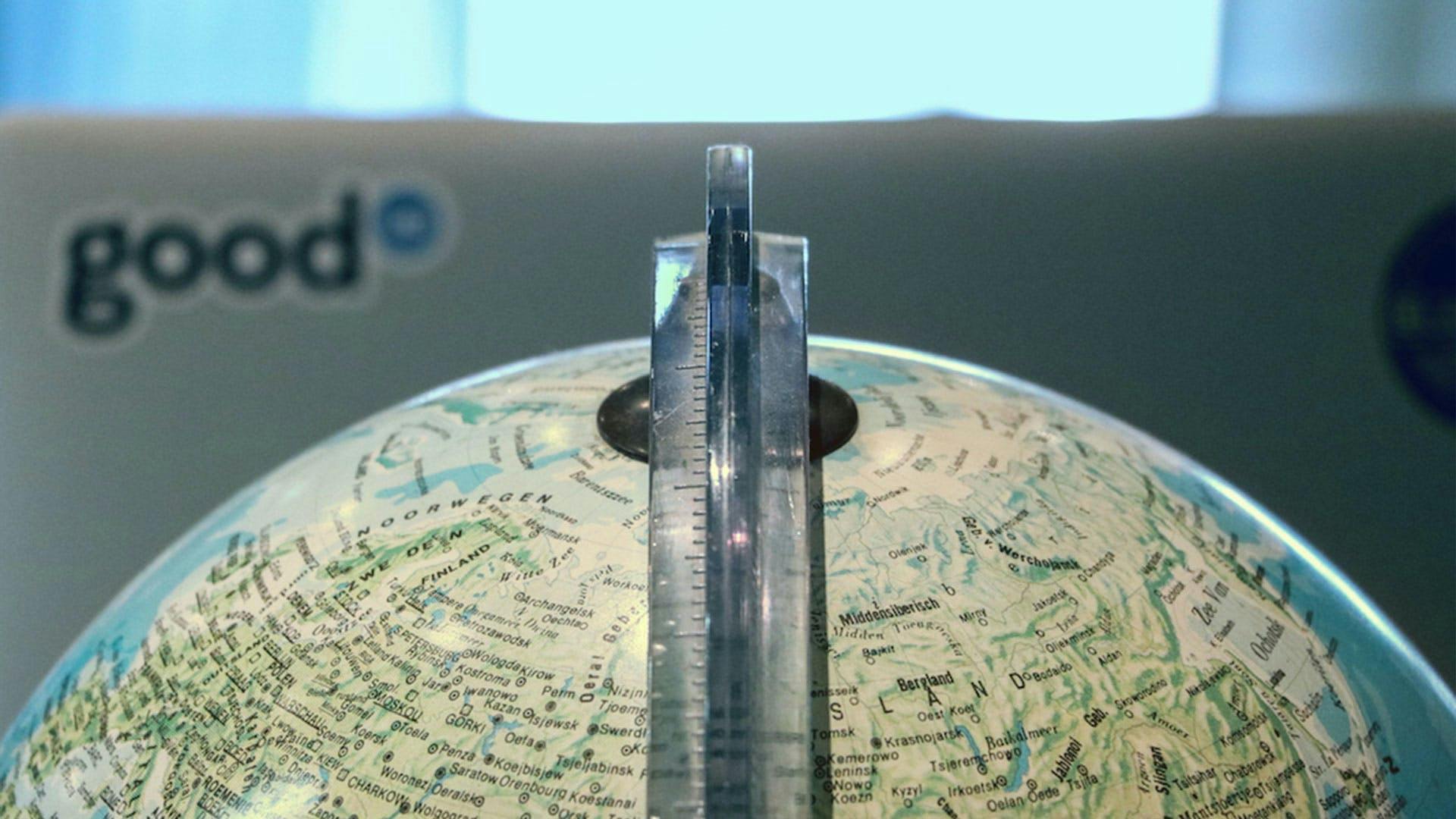Collaboration in the face of COVID-19: How GoodUp and Norrsken teamed up to create Action Against Corona
t’s already hard to remember a time before the coronavirus. The pandemic arrived not so long ago, and much of the world has become isolated and anxious, wondering whether the ordeal will ever reach an end. However, there are bright sparks of hope in this brave new world of COVID-19. Startups, corporates and other types of organizations are rallying to come up with innovative solutions to the problems caused by the coronavirus crisis. In a time of uncertainty, many players are working toward positive change and collaborating to ease the challenges the entire world is facing.
One such organization is the Amsterdam-based social enterprise GoodUp. The company, founded in 2017, has spent the previous few years creating software platforms for companies and organizations seeking to activate their employees and stakeholders to support the company purpose. Their goal is to activate over one billion people toward purposeful action and innovation by 2030.
To tackle the many challenges brought on by COVID-19, GoodUp partnered with the Norrsken Foundation, an impact investor and foundation in Sweden, and together they launched Action Against Corona.
Action Against Corona, a joint initiative established by Norrsken and Dagens Industri, with support from Startup Guide, is an online platform that brings together initiatives, partners, talented individuals and volunteers and connects them to initiatives that need certain resources and expertise. The platform welcomes anyone from all over the world to contribute their knowledge and skills to initiatives and organizations in need.
We sat down with GoodUp’s Head of Brand & Marketing Sezayi Arslan to learn more about what inspired GoodUp to team up with Norrsken and take on such an inspiring role in a difficult time.

Sezayi Arslan, GoodUp’s Head of Brand & Marketing
A History of Impact
“I really believe in the power of technology and doing good social work,” says Sezayi, who joined GoodUp in 2017, the same year the company was founded. Prior to becoming a part of GoodUp, Sezayi was an entrepreneur himself, cofounding the marketing startup DutchTag Mobile Marketing & Analytics in 2010 with university colleagues. He later became an event organizer for Museum Night Amsterdam, one of the biggest cultural events in the city, and spent three years in this role.
After working a few other jobs in advertising, Sezayi started to think about where he should devote his passion and skills. Around that time, a close friend of his became the chairman of a foundation in the Philippines that matched children in need with education opportunities. Sezayi loved this initiative and wondered how technology could empower it to make an even greater impact than it was already making.
This is when Sezayi encountered the 1%Club, a foundation that posited that many challenges could be tackled effectively if everybody shared one percent of their time, funds, knowledge and skills to contribute toward impact. Sezayi joined the organization in 2014 and helped build a marketplace for people to do good. The 1%Club created thousands of projects in many countries, focusing on the “power of the crowd” and ensuring that initiatives were local and bottom-up.
In 2015, the foundation was approached by Booking.com, who wanted to have a platform where employees and stakeholders could connect on impact initiatives. The 1%Club team tapped into the power of Booking’s business networks to build this platform where people within the Booking organization could team up for sustainable tourism. This presented a new kind of business model for the 1%Club in which they could leverage their technology to activate potential impact within larger corporates.
GoodUp evolved from the 1%Club into its own social venture based on the success of working with Booking, becoming an official organization in 2018 and retaining and growing their desire to help companies, from startups to corporates, give people the space, resources and connectivity to work toward real, positive change. “I really believe that the companies of the future are the companies that focus on societal challenges rather than just making profit for shareholders,” Sezayi says. “We want to help them get there.”
GoodUp helps companies to act on their purpose. The platform facilitates company-wide collaboration through a feature called “smart matchmaking,” which partners colleagues with the right skills to the initiatives that need them.
“Purpose is deeply personal, which is probably the reason why a lot of companies that have defined their purpose too broadly struggle to engage employees to act on it,” says Sezayi. “GoodUp connects personal purpose with the company purpose bottom-up. Using our platform means you give employees the space to start societal initiatives within their working environment and with their colleagues. So, employees use their unique skills to do good within your company’s purpose framework. It’s amazing to see the ideas that people come up with every day!”
The end goal for GoodUp is to go beyond creating platforms for corporates by developing one enormous marketplace for impact, an ecosystem where corporates, startups, NGOs, funds and individuals can match the right ideas to the right resources. Prior to their current initiatives to tackle COVID-19, GoodUp built platforms for Deloitte, Transavia, Unilever and more.
Norrsken and Action Against Corona
GoodUp and Norrsken had been in contact well before the COVID-19 pandemic, though it was the global crisis that galvanized the partnership into action. In a routine update call between the two ventures, Norrsken expressed that they wanted to do something to tackle the crisis, and their idea was to create a platform where people could start initiatives, grow existing innovative ventures built for purpose, and find talents and skills from all over the world to bolster them. “This is our core business,” responded GoodUp’s CEO Diana Krieger. “This is exactly what we do.” GoodUp immediately offered to help with the initiative and provided their technology to get Norrsken’s platform online.
Two weeks later, Action Against Corona went live. The platform was built in only two or three days, and within a week of its launch, there were already many initiatives on it connecting projects and companies in need with well-matched individuals offering in-demand skills.
The platform also gave startups working on solutions to the crisis a better channel for finding investment opportunities and finding like-minded entrepreneurs within this growing community of innovators and volunteers. “Ideas, projects and startups that do the most important work in the world right now get exposure,” says Sezayi about the platform. “We want to increase the likelihood of success and mitigate the damage caused by the global crisis.”
We want to increase the likelihood of success and mitigate the damage caused by the global crisis.
In response to the crisis in the Netherlands, GoodUp also set up its own initiative, coronacommunitycare.nl, to ensure that locals who wanted to volunteer had a way to connect and contribute. GoodUp’s own platform was designed more for volunteer activities as opposed to the broader startup and investment collaborations on Action Against Corona. “We saw a lot of people willing to do groceries, knit facemasks, and more, but there wasn’t a good structure for the demand,” says Sezayi. GoodUp contacted organizations they believed were in need of help, and the insight led them to build a platform to “do smart matchmaking between initiatives people who wanted to offer their help.”
Offerings on both platforms include webinars from local entrepreneurs, e-learning opportunities for people and families stuck at home, online group meditations and even writing workshops to produce postcards for elderly people living alone.

Sezayi Arslan, GoodUp’s Head of Brand & Marketing
Partnering for Impact
Teaming up with Norrsken allowed GoodUp to put a platform together in a short amount of time and make it incredibly successful. This shows that when individual companies, organizations, government entities or even intrepid individuals band together, the better (and more efficiently) they can tackle the crisis.
It also shows that, despite how challenging the current situation is, people are capable of immense good when they come together. “I really feel that we’re getting closer together during this crisis,” Sezayi says. “We need each other now more than ever.” Partnerships and connections are being forged swiftly, and innovations are arising out of these need-based relationships at an inspiring rate.
However, it’s important that once we get through this, we should remember the lessons we’ve learned partnering up the way we have been.
Sezayi notes that many companies are in crisis-management mode to avoid losing too much of their profits in this time. If this situation has taught us anything, it’s that there needs to be a seismic shift in mindset from focusing on profit to caring deeply about purpose and impact. There are much bigger problems out there than simply turning a profit, and big global challenges such as climate change will still be there after we’ve tackled the COVID-19 issues.
Of course, COVID-19 has sparked significant self- and societal awareness in many people. Sezayi observes that people are realizing that they could and should be doing more. They’re thinking about how they can bring more meaning and value to their work and their lives, and the crisis has also brought people closer together, especially with the isolation measures in place. “It’s important to look into how we can be more purposeful and collaborate more with innovators and social ventures to make an impact together,” says Sezayi.
The crisis is inspiring people from all walks of business and entrepreneurial life to re-examine the purpose and actions of our ventures, and how working in silos may not lead to the impact we want. We need to work together and inspire each other to go beyond the classic expectations of the business world.
Sezayi also adds that Action Against Corona, as well as Corona Community Care, highlights the power of collective intelligence (CI), which he defines as “shared or group intelligence that emerges from the collaboration, collective efforts and competition of many individuals.” Out of collaboration comes an intelligence that cannot exist on an individual level. “If we can facilitate and enhance CI,” suggests Sezayi, “we can arrive faster and more efficiently to solutions that tackle the most urgent problems.”
How we work together now matters, and GoodUp has set an inspiring example as to how technology can help startups, corporates and every type of organization activate their people, and those in their ecosystems, to collaborate toward impact.
To find how you can help be part of these innovative partnerships and platforms, GoodUp welcomes you to connect with them and start the conversation about how you can be an asset in making an impact. Another way to bring your innovation to the table is by joining the Hack the Crisis movement, an ongoing roster of online hackathons with participants all over the world. The hackathon came to the Netherlands 3-5 April, in collaboration with GoodUp, The Next Web, Innofest, StartupAmsterdam, EY, StartupBootcamp and Rockstart.
[ Visit: goodup.com ]

